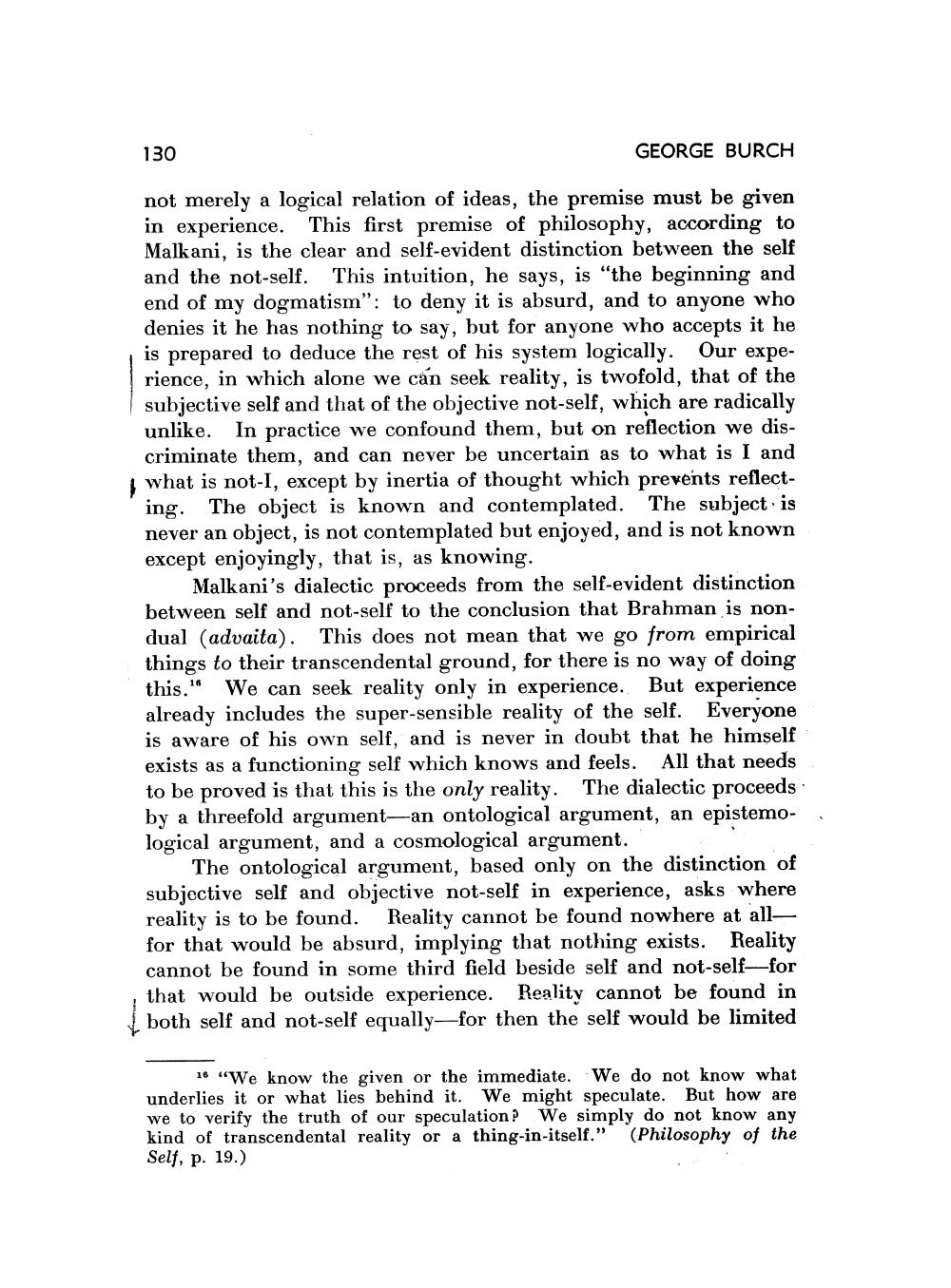Book Title: Contemporary Vedanta Philosophy Continued Author(s): George Burch Publisher: George Burch View full book textPage 9
________________ 130 GEORGE BURCH not merely a logical relation of ideas, the premise must be given in experience. This first premise of philosophy, according to Malkani, is the clear and self-evident distinction between the self and the not-self. This intuition, he says, is "the beginning and end of my dogmatism": to deny it is absurd, and to anyone who denies it he has nothing to say, but for anyone who accepts it he is prepared to deduce the rest of his system logically. Our experience, in which alone we can seek reality, is twofold, that of the subjective self and that of the objective not-self, which are radically unlike. In practice we confound them, but on reflection we dis criminate them, and can never be uncertain as to what is I and | what is not-I, except by inertia of thought which prevents reflect ing. The object is known and contemplated. The subject is never an object, is not contemplated but enjoyed, and is not known except enjoyingly, that is, as knowing. Malkani's dialectic proceeds from the self-evident distinction between self and not-self to the conclusion that Brahman is nondual (advaita). This does not mean that we go from empirical things to their transcendental ground, for there is no way of doing this." We can seek reality only in experience. But experience already includes the super-sensible reality of the self. Everyone is aware of his own self, and is never in doubt that he himself exists as a functioning self which knows and feels. All that needs to be proved is that this is the only reality. The dialectic proceeds by a threefold argument-an ontological argument, an epistemological argument, and a cosmological argument. The ontological argument, based only on the distinction of subjective self and objective not-self in experience, asks where reality is to be found. Reality cannot be found nowhere at all for that would be absurd, implying that nothing exists. Reality cannot be found in some third field beside self and not-self-for that would be outside experience. Reality cannot be found in both self and not-self equally—for then the self would be limited 16 "We know the given or the immediate. We do not know what underlies it or what lies behind it. We might speculate. But how are we to verify the truth of our speculation? We simply do not know any kind of transcendental reality or a thing-in-itself." (Philosophy of the Self, p. 19.)Page Navigation
1 ... 7 8 9 10 11 12 13 14 15 16 17 18 19 20 21 22 23 24 25 26 27 28 29 30 31 32 33 34 35 36
